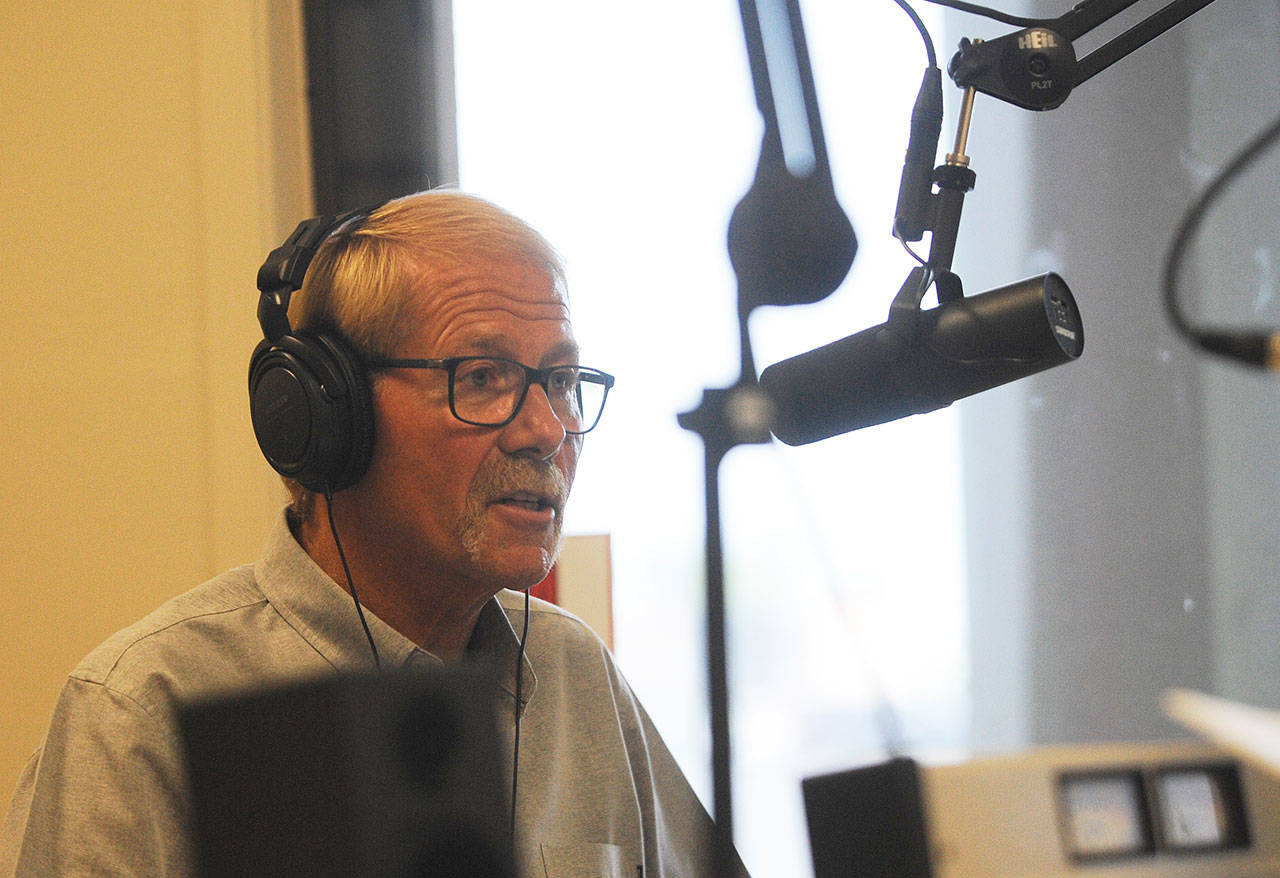The coffee was “virtual,” the conversation live and lively.
In between Manhattan Transfer’s “Java Jive” and Nat Cole describing a trip down “Route 66,” Sequim mayor William Armacost and Public Works Director David Garlington dished on hot local topics at KSQM 91.5 FM last week.
With Early Morning Show host Trish Noa hosting, Armacost on May 28 answered emails and live questions from KSQM listeners during a session of “Coffee with the Mayor,” moved to the airwaves with countywide limits on gatherings still in place.
Armacost and Garlington handled topics from how the residents, health officials and the region overall is handling the COVID-19 pandemic, to views on the proposed opioid treatment facility.
“We’re very ready to move into Phase 2; we’re going to be able to open the doors to our businesses,” Armstrong said, just a few hours before Washington State Secretary of Health John Wiesman announced Clallam was approved to move into Phase 2 and ease some business and public facility use restrictions.
On confidence in Dr. Allison Berry Unthank:
“We are very fortunate to have her to guide us safely (through this health crisis),” Armacost said.
The Sequim mayor said he is confident Unthank is filtering what locals need to know from national and state sources into local directives, and is also impressed with her compassion while relating those directives.
“Our first-line responders have done an amazing job of educating us,” he said.
Whose rules does the city follow in deadling with COVID-19?
The Centers for Disease Control and Prevention (CDC) is the go-to source, Armacost said, helping locals find a way to get businesses open in a safe manner.
“We as a municipality, first and foremost, follow that lead,” he said.
Why allow a medication-assisted treatment (MAT) facility in the city? And how will the MAT lawsuit affect the city?
Treatment has to start with addressing the underlying issues that people seeking recovery, Armacost said, including societal and mental health issues.
“Many (addicts) are dual diagnosed; we know we can remove the drug or drink,” he said.
In regard to the lawsuit, Armacost noted Sequim is fortunate to have city attorney Kristina Nelson-Gross handling legal issues, and that he expects whatever the decision a judge makes it will be the correct decision and have a positive outcome.
“Both sides will have their day in court,” Armacost said. “I’m optimistic. I believe, I’m convinced, we can have a better, new normal.”
What plants are you selecting for the reconstructed Fir Street project?
City staff look to avoid plants and trees with shallow root systems, Garlington said, because they can break up sidewalks when spreading out.
The project may become a model for other future city road projects, he said.
“It’s hard to remember what Fir Street looked like — not very attractive,” Garlington said.
Shouldn’t signs in Sequim be removed?
Any signs blocking intersections that pose a safety threat are promptly removed by staff, Armacost said, but freedom of speech allows for residents to have their say.
A temporary change to the city sign ordinance will allow for more A-frame sandwich shop-style signs to help local businesses advertise and get people back into shops, he said.
On social distancing at Sequim’s dog park:
“We’re not writing tickets (but) we are talking to people,” Garlington said. “That’s why social distancing is so important.
If you get into a situation that you feel uncomfortable, remove yourself from that situation. It’s a big park, take your dog some other place.”



